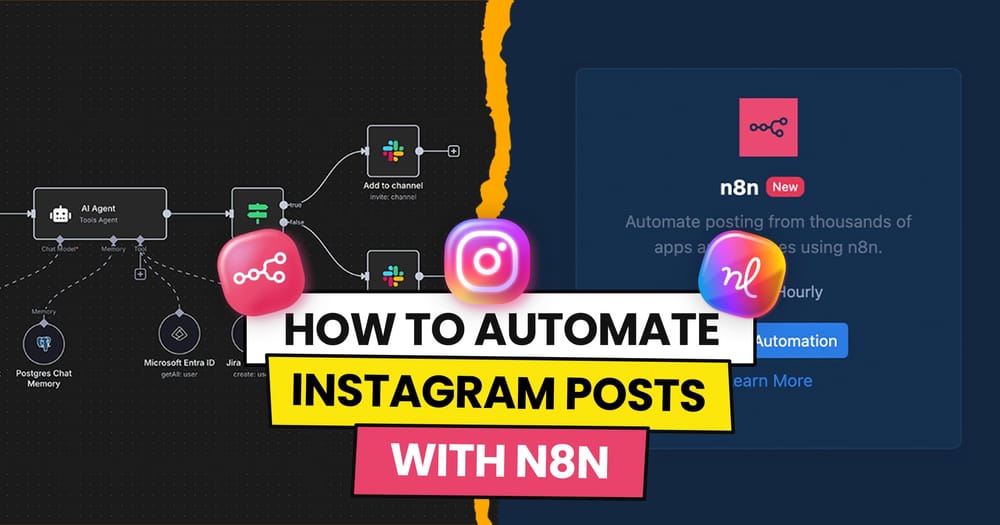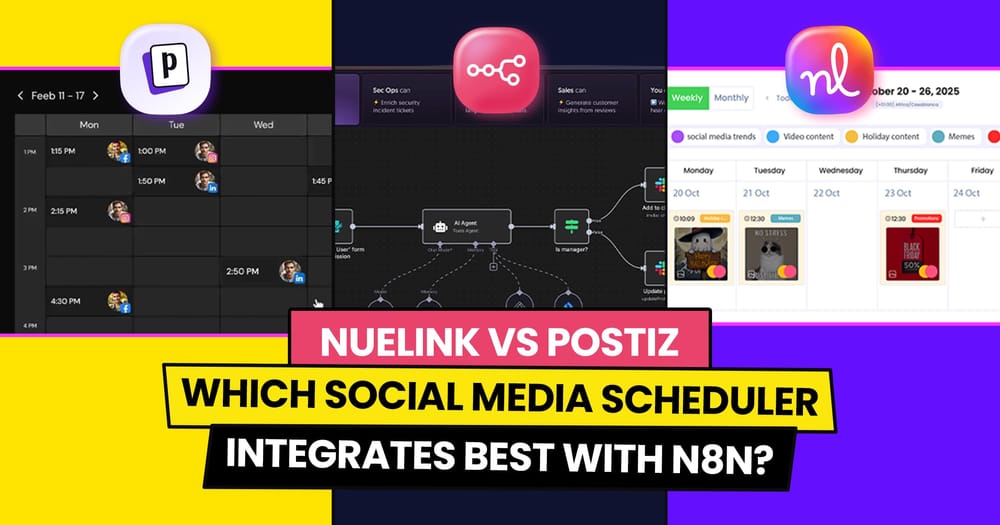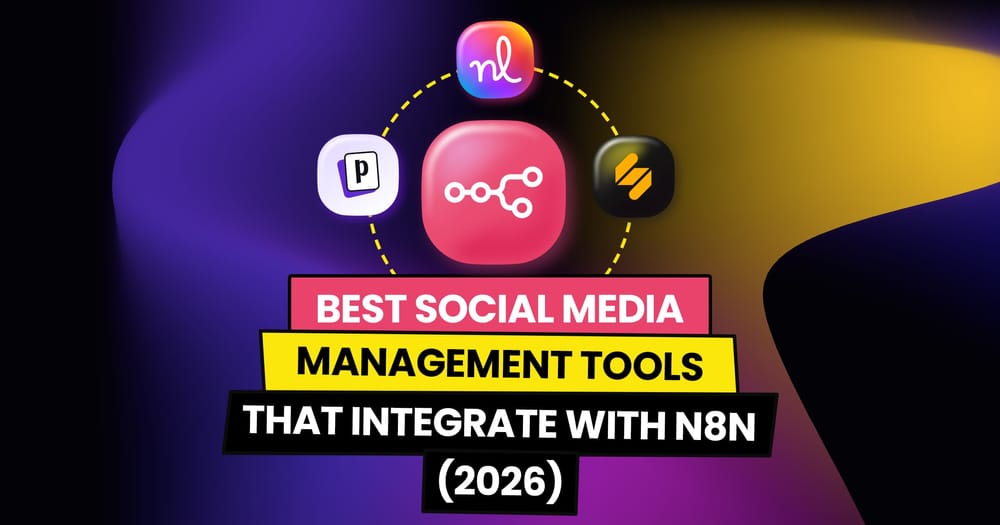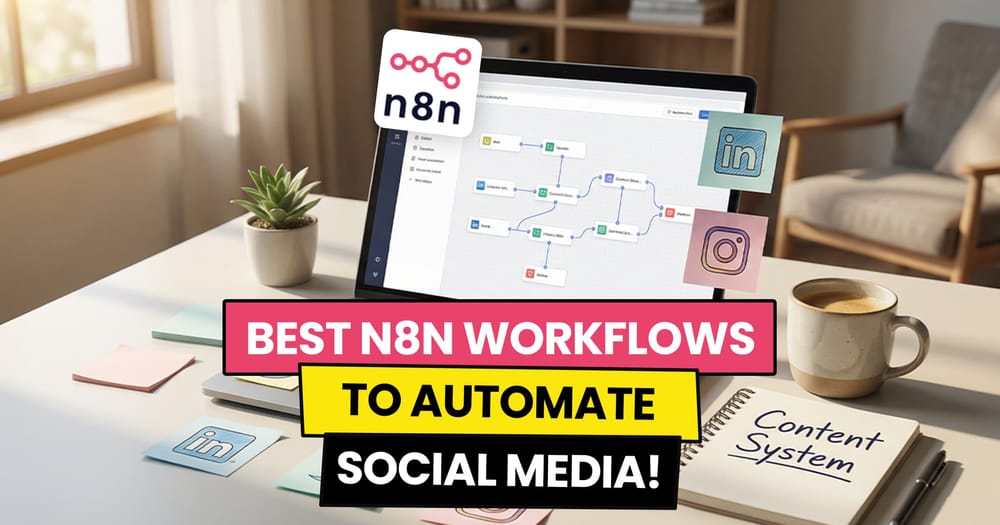Finding the perfect image for your social media posts can be complex, especially when it comes to understanding copyright issues and finding the right resources. And the right image can do a lot for your brand; it has to set the right tone and aesthetic to suit your content and brand voice.
If you are a small business owner or content creator, you don't have the luxury to always film or create images to add to your social media posts. So, what’s the alternative?
In today’s blog post, we will cover copyright issues on social media and show you the best websites for copyright-free images that you can use across your platforms.
- What is Copyright? What’s Fair Use?
- Royalty-Free vs. Copyright-Free, What’s the Difference?
- What Can you use Copyright-free Images for on Social Media?
- How Can You Avoid Copyright Claims on Social Media?
- Where to Get Your Copyright-free Images From?
What is Copyright? What’s Fair Use?
First things first, copyright is the legal framework that governs intellectual property, including various forms of creative works like writing, music, films, designs, and of course images. It automatically applies once a piece of work is created, with the creator becoming the owner and having the authority to grant usage rights to others.
Paid licensing is the most straightforward way to obtain legal rights to use a photo. But that can be expensive. So, on social media, you will hear a lot of talk about fair use when it comes to copyright issues.
Fair Use permits limited use of copyrighted material without permission under specific circumstances. These include non-profit and educational purposes, significant transformation of the image's meaning or purpose, and informative use for the public good.
However, Fair use can be complex and requires careful consideration of the context and purpose of use. We have seen many lawsuits on this issue, the H3H3 multiple fair use lawsuits are a true testament to that. This is why free copyright images are essential for creators and users alike.
Copyright-free images are those that are not subject to copyright protection, meaning they can be used freely by anyone without obtaining permission from the creator. These images are often found in the public domain, either because the copyright has expired or the creator has explicitly waived their rights to the image.
It's important to note that copyright infringement isn't the only legal risk so, brands must also be mindful of product names, as seen in the Sierra Mist lawsuit, where PepsiCo faced legal action over trademark issues related to rebranding and naming. So it's important for brands to do there due diligence
Royalty-Free vs. Copyright-Free, What’s the Difference?
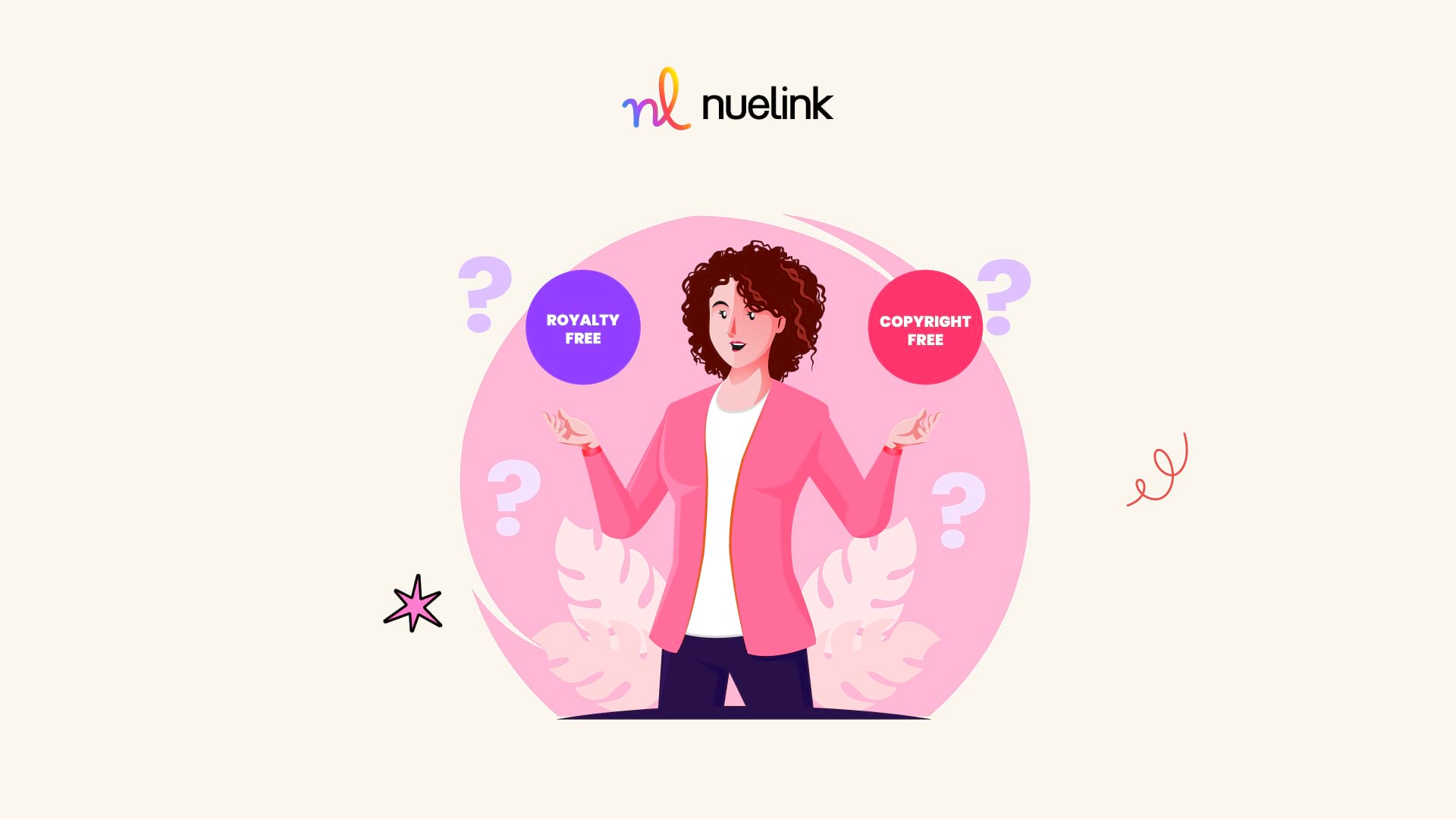
Distinguishing between royalty-free and copyright-free images can be tricky, but it's crucial if you're planning to use them in your creative projects. Let's break down the differences in a clear and easy-to-understand way.
Copyright-Free Images
Copyright-free images, as we said, are those provided by a photographer or owner who grants permission for anyone to use them. While the owner retains the copyright, they allow others to use the image freely.
You can typically find copyright-free images on public domain websites or in copyright-free image libraries, which we will cover later in the post.
Sometimes, copyright-free images are not legally owned by anyone. This can happen if the licensing for an image expires, this is the reason why a lot of people have been using the first versions of Mickey Mouse freely, or if the artist donated it to the public domain for free use.
Royalty-Free Images
On the other hand, royalty-free images are usually hosted on specific image library websites. These sites often require a subscription or a one-time purchase fee. For example, sites like Pixabay offer royalty-free images you can use after paying a fee.
No matter which type of image you choose, it's essential to take precautions to ensure you're using them legally. Whether it's royalty-free, copyright-free, or rights-managed photos, always check first.
What Can you use Copyright-free Images for on Social Media?
Copyright laws on social media are aligned with those in other contexts. If you want to use an image you didn't create, obtaining permission is crucial, whether through a license or directly from the creator.
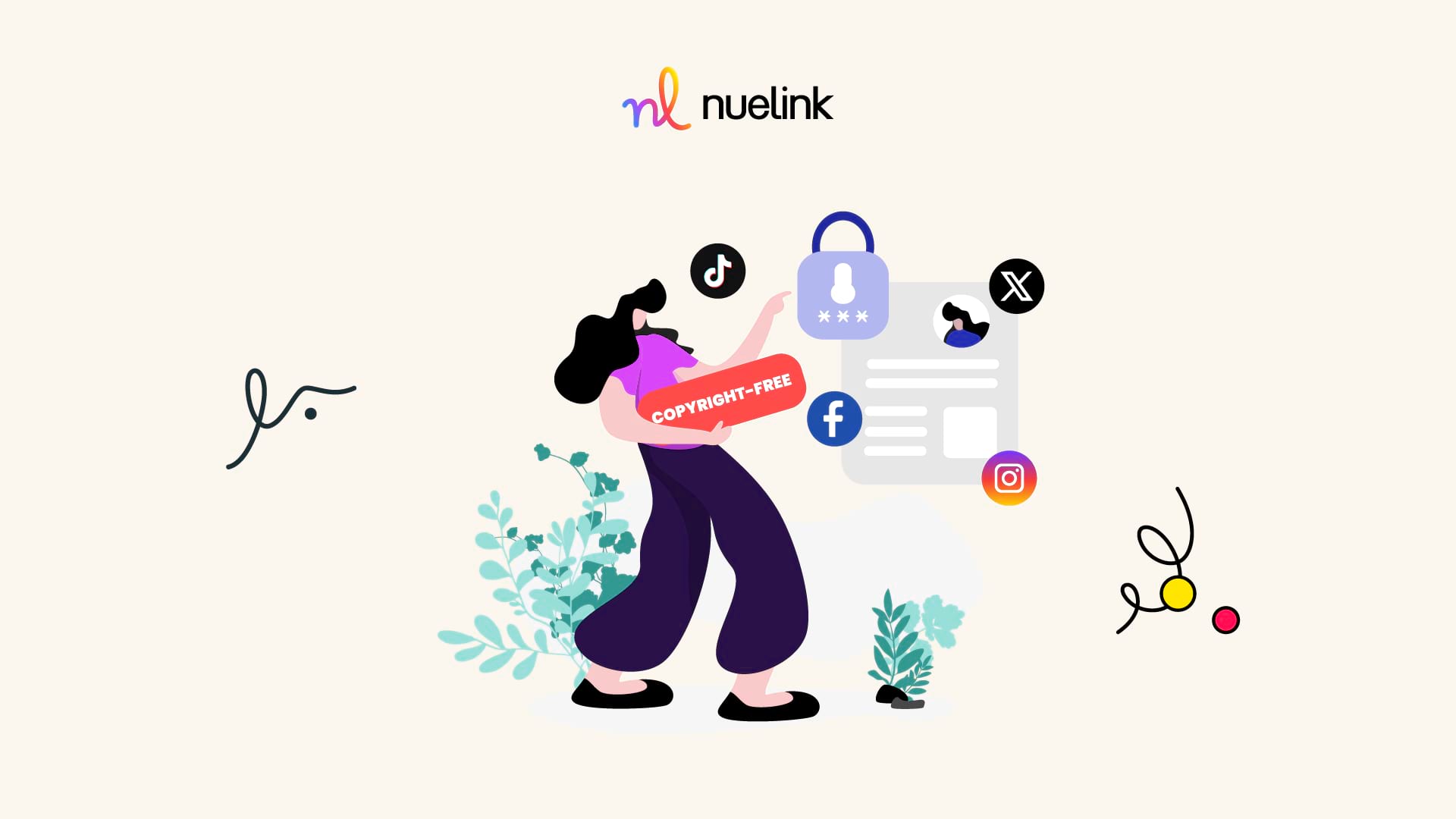
Social media platforms' Terms of Use and Community Guidelines often mandate that posted content must not violate someone else's intellectual property rights. It's important to understand that sharing an image on a public social media account doesn't mean it's in the public domain; the original creator still holds the copyright.
However, social media platforms encourage sharing, leading to some unique ways copyrighted images can be utilized.
Sharing images within a platform using native tools like retweets, reposts, or repins typically doesn't require additional permissions. These tools automatically credit the creator and are subject to the platform's terms and conditions.
Many brands leverage user-generated content by reposting it on their accounts, so this takes care of the issue and offers the creators the credits they are due.
Tools like stitches and duets on platforms such as Instagram and TikTok allow users to build upon others' work. Since these are native features, no additional permission is required. The original creator is automatically credited and notified.
Copyright-free images can be used for a variety of purposes on social media platforms. Whether you're a business owner, content creator, or social media user, these images offer a convenient solution for enhancing your posts without the risk of copyright infringement, which is always a big no-no in the creator space.
You can use copyright-free images to create engaging visuals for your social media content, including posts, stories, ads, and profile pictures. With copyright-free images, you have the freedom to customize and share visual content across your social media channels without having to worry about each step you take.
How Can You Avoid Copyright Claims on Social Media?
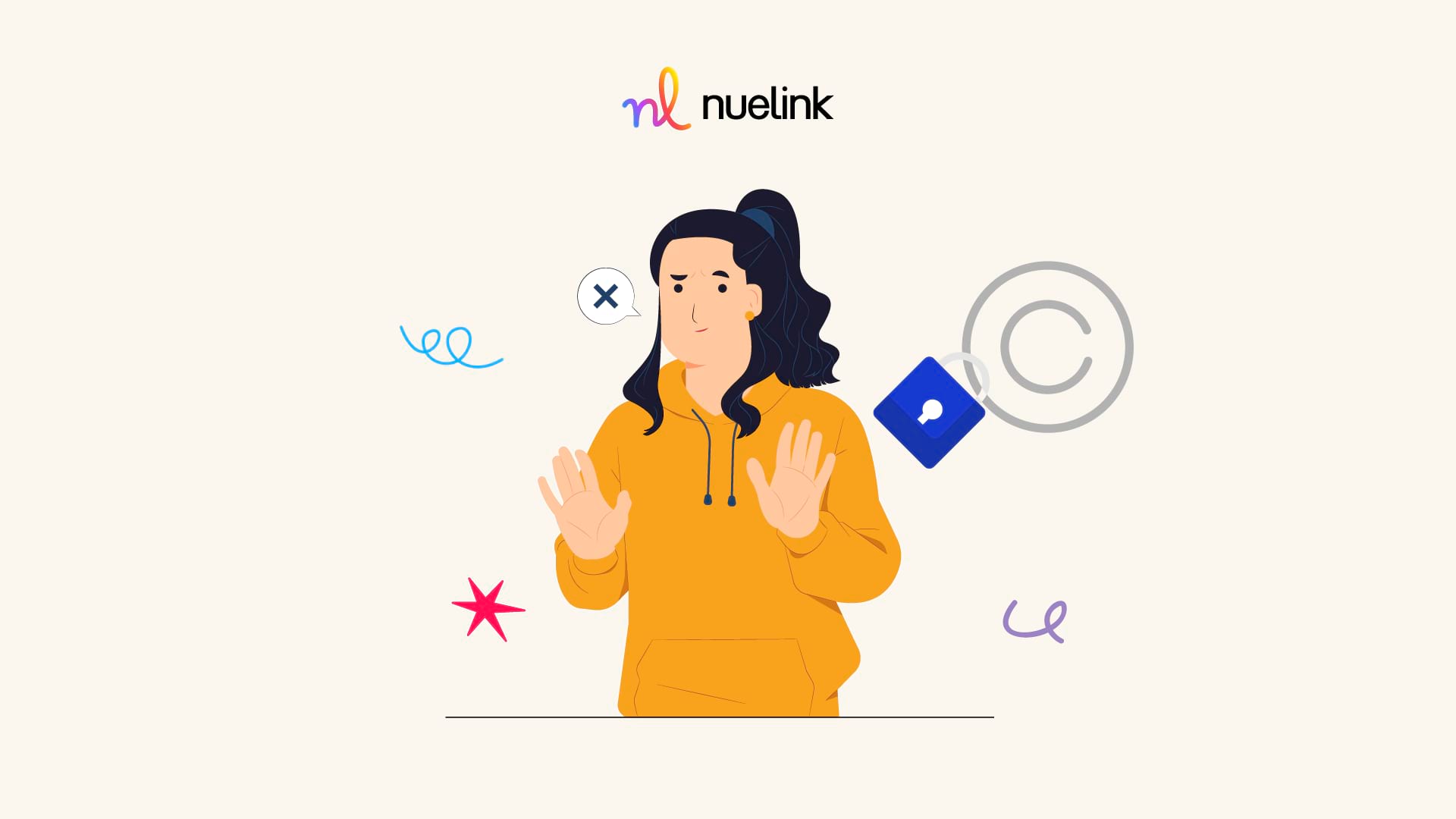
Avoiding copyright claims on social media for images involves several key practices. Firstly, consider using your own images whenever possible to ensure full control over the content and to avoid infringing on others' rights.
However, this is not always possible so if you need to use images created by others, make sure to obtain the necessary licenses or permissions. This may include using images from stock photo websites, subscribing to image licensing platforms, or directly contacting the creator for permission. Therefore, you can use a reverse image search tool to find the original source of an image and check its usage rights before adding it to your content.
Understanding the concept of fair use is essential as well. However, it's crucial to adhere to the guidelines and recognize that fair use may not apply in all situations.
If you come across such markings, refrain from using the images without explicit permission from the copyright owner. Instead, seek alternative images that are available for use.
And most importantly, use images from the public domain whenever possible. These images are typically free to use without permission. Adhering to these guidelines ensures that your content complies with platform policies and reduces the risk of copyright claims or penalties, you don’t want to throw away years of building a following on social media with one wrong move.
Where to Get Your Copyright-free Images From?
There's a plethora of online platforms offering copyright-free images, but they vary widely in terms of image quality and searchability. Here are some of our favorites:
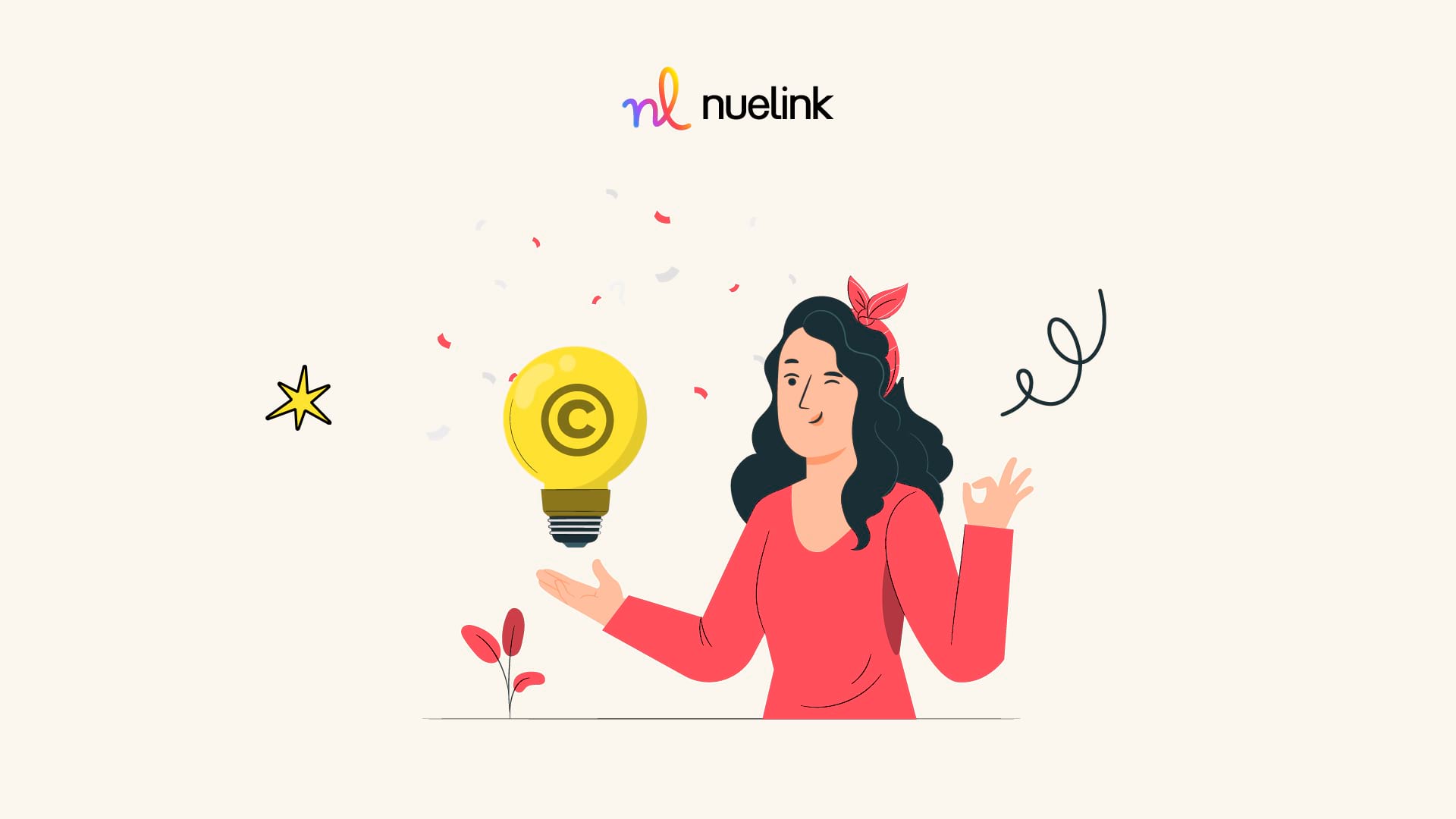
AI Pics
In the age of AI, a great way to obtain copyright-free images is by using AI-powered image generation. Services like AI Pics allow you to generate unique images simply by entering textual prompts that describe the desired imagery. AI Pics can then produce amazing, tailor-made images in your specified aspect ratio. You're free to use these generated images however you'd like, without copyright restriction.
Unsplash
Unsplash boasts a library of over 2 million high-resolution images contributed by photographers worldwide. The collection leans towards artsy portraits and scenic landscapes. All Unsplash images are free to use without attribution for both commercial and non-commercial purposes.
The platform caters to a wide range of needs, and its community-driven model ensures fresh content. You can use filters and search keywords to help you find just the right image since it can be a daunting task with this vast library.
Burst
Burst, powered by Shopify, offers thousands of professionally shot stock images suitable for any project or website. These images are free to use, don't require attribution, and are available in both low and high resolutions.
The platform regularly updates its collection to reflect trends and current events. Burst sources images internally, resulting in a smaller library than community-driven platforms. While this may mean less variety, the quality of images tends to be higher.
StockSnap.io
StockSnap.io curates its growing collection of stock images from user submissions, adding hundreds of new images each week. Completely free from copyright restrictions.
Its smaller library increases the chances of finding unique images. Quality, however, varies among user-submitted images, although most are high-quality.
Pixabay
Pixabay is one of the largest databases of free images approved for commercial use. All Pixabay images are free and don't require attribution.
The platform offers a wide range of images, from artistic backgrounds to standard stock photos, and features a user-friendly website interface.
Reshot
Reshot offers not only photos but also royalty-free icons and illustrations. The platform aims to simplify the design process for users. While Reshot prides itself on offering unique images, its library may not be as comprehensive as other platforms. However, this uniqueness can be a positive depending on your needs.
Content creators and businesses can access a wealth of high-quality, copyright-free images for various purposes, whether commercial or personal, without the need for attribution.
However, beyond just sourcing images, effective social media management encompasses a range of tasks, including content creation, scheduling, analysis, and audience engagement. So, make sure that you are also using a good social media management tool, Like Nuelink, to help make social media marketing as hands-free as possible.



